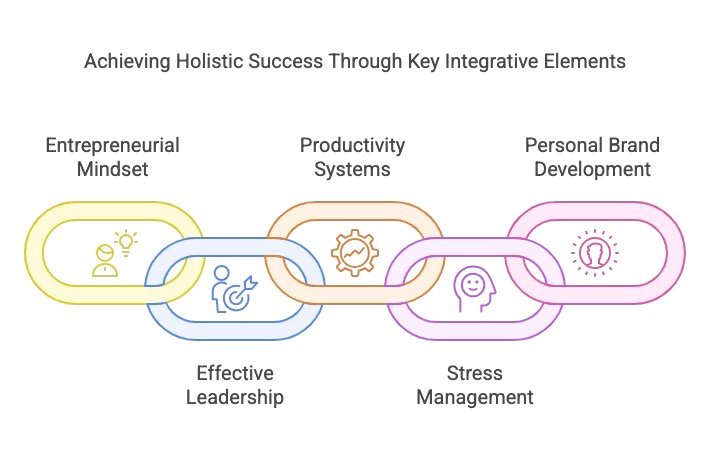
Key Takeaways
Estimated reading time: 8 minutes
- Developing an entrepreneurial mindset is crucial for startup founders to navigate complex business landscapes.
- Key traits include adaptability, resilience, and creativity, which drive sustainable business growth.
- Effective leadership styles like participative and transformational leadership enhance team performance.
- Implementing time management techniques and productivity tools maximizes founder productivity.
- Managing stress through mindfulness, physical well-being, and work-life balance is essential.
- Building a strong founder brand establishes credibility and attracts investors and talent.
- Integrating mindset development, leadership, productivity, stress management, and personal branding leads to startup success.
Table of Contents
- Understanding Entrepreneurial Mindset Development
- Startup Leadership Tips
- Founder Productivity Strategies
- Managing Startup Stress
- How to Build a Founder Brand
- Integrating the Elements for Success
- Conclusion
- Frequently Asked Questions
Understanding Entrepreneurial Mindset Development
An entrepreneurial mindset isn’t just about having good business ideas—it’s a comprehensive set of skills, attitudes, and behaviors that enable founders to spot opportunities, tackle challenges head-on, and maintain resilience through setbacks. This mindset forms the foundation of successful entrepreneurship and drives sustainable business growth.
This mindset is further explored in What No One Tells You About Being a Startup Founder.
Key traits that define a strong entrepreneurial mindset include:
- Adaptability: The ability to pivot strategies quickly in response to market changes and new challenges
- Resilience: Maintaining motivation and drive despite obstacles and setbacks
- Creativity: Finding innovative solutions to complex problems and thinking beyond conventional approaches
These characteristics directly impact your startup’s growth and sustainability by:
- Enhancing decision-making capabilities
- Fostering a culture of continuous learning
- Building the resilience needed for long-term success
For more insights, refer to Mindforest AI’s article on Growth Mindset for Entrepreneurs, MIT Sloan’s 3 Traits of an Entrepreneurial Mindset, and The Founder’s Mental Toolkit.
Startup Leadership Tips
Effective leadership is crucial for startup success, and different leadership styles can be appropriate depending on your team and situation.
Participative Leadership
This approach involves team members in decision-making processes, which:
- Promotes creativity and innovation
- Fosters a sense of ownership
- Encourages diverse perspectives
- Builds a collaborative environment
Learn more from Leadership Styles & Team Building and What No One Tells You About Being a Startup Founder.
Transformational Leadership
This style focuses on:
- Inspiring and motivating teams toward a compelling vision
- Challenging assumptions and conventional thinking
- Providing a strong sense of purpose
- Enhancing employee engagement and performance
Explore this further in Leadership Styles Examples and The Founder’s Mental Toolkit.
To build and lead a cohesive team:
- Maintain open and transparent communication
- Set clear goals and expectations
- Provide regular feedback and recognition
- Make swift, informed decisions while remaining flexible
For additional tips, see What No One Tells You About Being a Startup Founder.
Founder Productivity Strategies
Time management is crucial for startup founders. Here are effective techniques to maximize your productivity:
Time Management Techniques
- Pomodoro Technique: Work in focused 25-minute intervals followed by short breaks
- Time Blocking: Allocate specific time blocks for different tasks and projects
- Eisenhower Matrix: Prioritize tasks based on urgency and importance
Recommended Productivity Tools
- Trello: Visual task organization
- Asana: Comprehensive project management
- Notion: All-in-one workspace
Communication:
- Slack: Team messaging and collaboration
- Google Calendar: Schedule management and time tracking
Productivity-Boosting Habits
- Establish consistent morning routines
- Implement regular “deep work” periods
- Take strategic breaks to maintain energy levels
- Incorporate physical activity into your daily schedule
For more strategies, refer to The Founder’s Mental Toolkit.
Managing Startup Stress
Startup founders face unique stressors that require effective management strategies:
Common Stress Sources
- High workload and extended working hours
- Financial pressures and funding concerns
- Leadership responsibilities
- Market uncertainty
Practical Stress Management Techniques
Mindfulness Practices:
- Daily meditation sessions
- Mindfulness apps (Headspace, Calm)
- Regular breathing exercises
Physical Well-being:
- Consistent exercise routine
- Adequate sleep
- Healthy eating habits
Work-Life Balance:
- Set boundaries between work and personal time
- Schedule regular breaks
- Practice effective delegation
- Maintain social connections outside of work
For more insights on managing stress, refer to The Founder’s Mental Toolkit: Navigating the Emotional Reality of Startup Growth.
Steps to Develope Your Founder Brand
In today’s competitive landscape, establishing a strong founder brand is essential for entrepreneurs looking to make a lasting impact. This document outlines the key steps to develop your founder brand, focusing on defining your brand identity, clarifying your mission and values, identifying your unique value proposition, and understanding your target audience. By following these steps, you can create a compelling brand that resonates with your audience and sets you apart from the competition.
How to Build a Founder Brand
A strong personal brand is essential for startup founders, helping to:
- Establish credibility in your industry
- Attract investors and talent
- Position yourself as a thought leader
- Differentiate from competitors
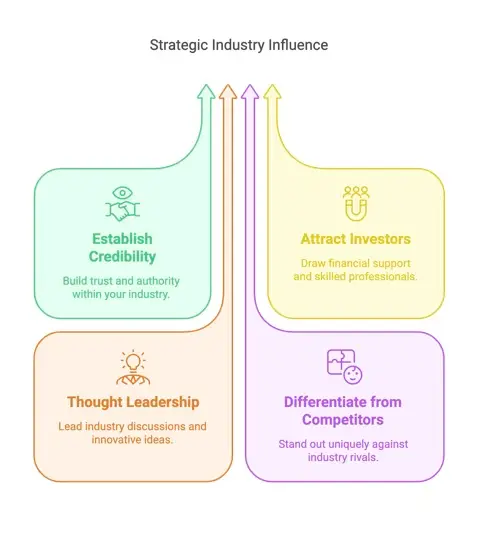
Define Your Brand Identity
The first step in developing your founder brand is to define your brand identity. This involves understanding who you are as a founder and what you want your brand to represent.
Consider the following elements:
-
Personal Story: Share your journey, experiences, and motivations that led you to become a founder. This personal touch can create a deeper connection with your audience.
-
Visual Elements: Think about the colors, fonts, and imagery that reflect your personality and values. Consistency in visual branding helps reinforce your identity.
-
Tone of Voice: Determine how you want to communicate with your audience. Your tone should reflect your personality—whether it’s professional, casual, or inspirational.
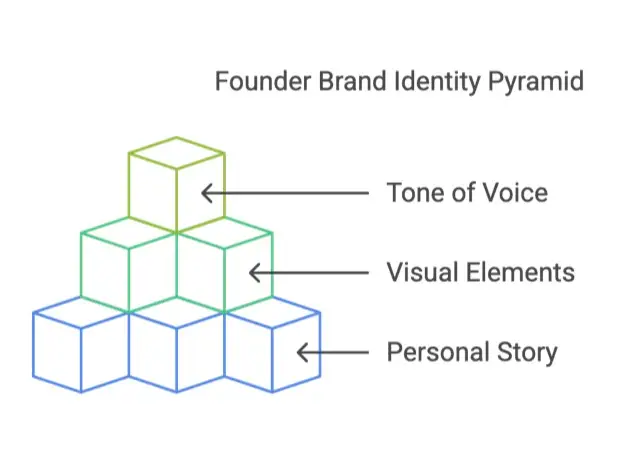
How to effectively communicate personal brand?
-
Personal Story: Share your journey, experiences, and motivations that led you to become a founder. This personal touch can create a deeper connection with your audience.
-
Visual Elements: Think about the colors, fonts, and imagery that reflect your personality and values. Consistency in visual branding helps reinforce your identity.
-
Tone of Voice: Determine how you want to communicate with your audience. Your tone should reflect your personality—whether it’s professional, casual, or inspirational.
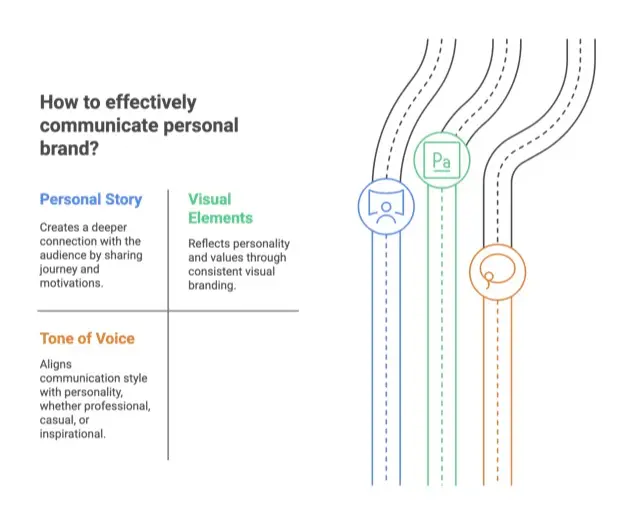
Clarify Your MIssion and Values
Once you have a clear brand identity, the next step is to clarify your mission and values. Your mission defines the purpose of your brand, while your values represent the principles that guide your actions. To articulate these effectively:
-
-
Mission Statement: Write a concise statement that captures the essence of what you aim to achieve with your brand. This should inspire and motivate both you and your audience.
-
Core Values: Identify the key values that are important to you and your brand. These values should influence your decision-making and interactions with your audience.
-
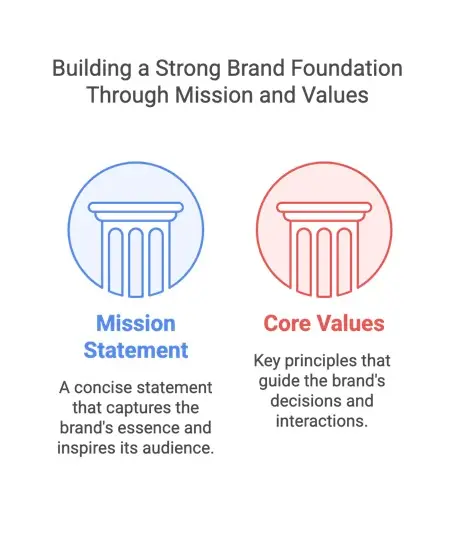
Identify Your Unique Value Proposition
Your unique value proposition (UVP) is what sets you apart from others in your industry. It’s essential to clearly articulate what makes your brand unique and why your audience should choose you over competitors. To identify your UVP:
-
Analyze Competitors: Research other founders and brands in your niche. Identify what they offer and how you can differentiate yourself.
-
Highlight Strengths: Reflect on your skills, experiences, and insights that give you a competitive edge. What do you bring to the table that others don’t?
-
Customer Benefits: Focus on the benefits your audience will receive from your brand. How will your products or services improve their lives or solve their problems?
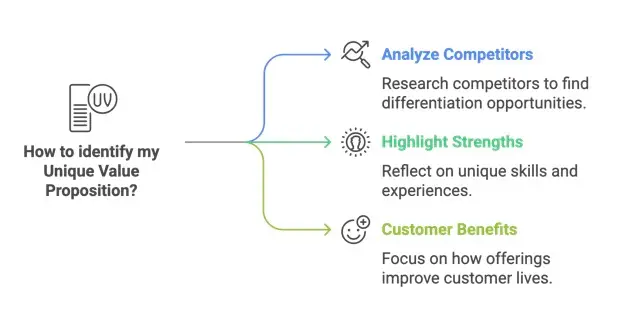
Understand Your Target Audience
Finally, understanding your target audience is crucial for developing a successful founder brand. Knowing who you are trying to reach will inform your messaging, marketing strategies, and overall brand approach. To gain insights into your audience:
-
Create Buyer Personas: Develop detailed profiles of your ideal customers, including demographics, interests, and pain points. This will help you tailor your brand messaging to resonate with them.
-
Engage with Your Audience: Use social media, surveys, and direct interactions to gather feedback and understand your audience’s needs and preferences.
-
Monitor Trends: Stay informed about industry trends and shifts in consumer behavior. This will help you adapt your brand strategy to meet evolving demands.
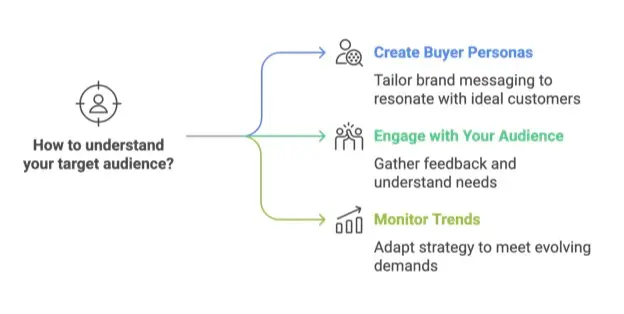
Leverage Social Media
Choose appropriate platforms (LinkedIn, Twitter)
- Share valuable industry insights
- Engage with your audience consistently
- Create and curate relevant content
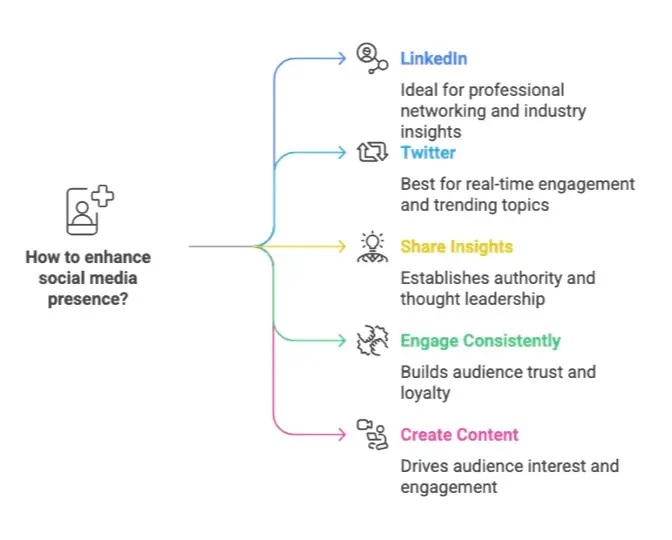
Network Effectively
- Attend industry events
- Participate in speaking opportunities
- Join relevant professional groups
- Build meaningful relationships
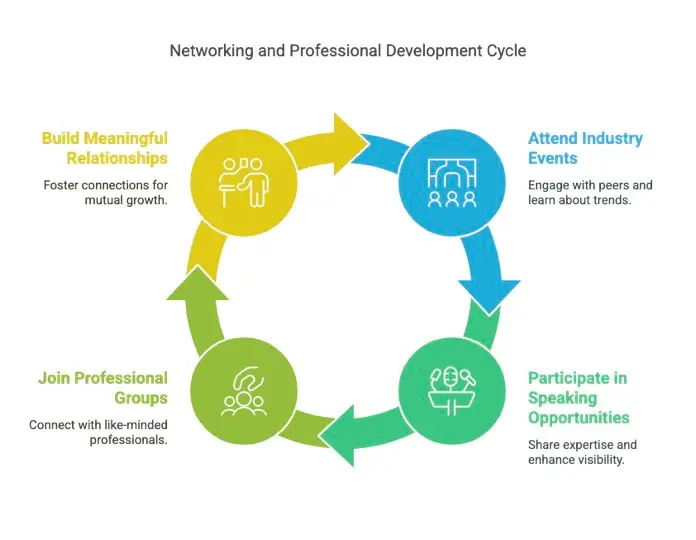
For additional guidance, see What No One Tells You About Being a Startup Founder.
Integrating the Elements for Success
Success comes from the seamless integration of:
-
Strong entrepreneurial mindset
-
Effective leadership
-
Efficient productivity systems
-
Personal brand development

Action Steps for Implementation
- Set clear goals for personal development
- Create a balanced schedule incorporating all elements
- Track progress using relevant metrics
- Adjust strategies based on results
- Maintain consistency in execution
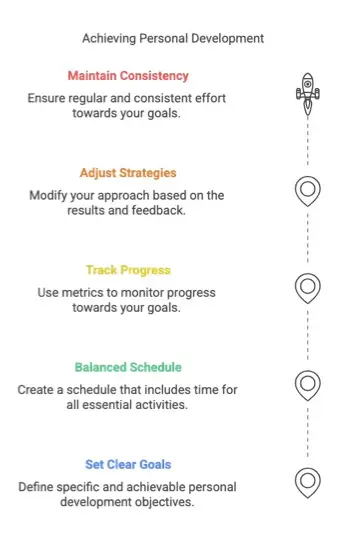
Frequently Asked Questions
What is an entrepreneurial mindset?
An entrepreneurial mindset is a set of skills, attitudes, and behaviors that enable individuals to identify opportunities, overcome challenges, and persist through setbacks. It includes traits like adaptability, resilience, and creativity.
Why is leadership style important in a startup?
The right leadership style can motivate teams, foster innovation, and drive the startup toward its goals. It helps in building a collaborative culture and enhances overall team performance.
How can founders improve their productivity?
Founders can improve productivity by implementing time management techniques, using productivity tools, establishing routines, and incorporating habits that boost focus and efficiency.
What are effective stress management strategies for founders?
Effective strategies include practicing mindfulness, maintaining physical well-being through exercise and healthy habits, ensuring work-life balance, and setting boundaries between work and personal time.
How does building a founder brand benefit my startup?
A strong founder brand establishes credibility, attracts investors and talent, positions you as a thought leader, and differentiates your startup from competitors.
